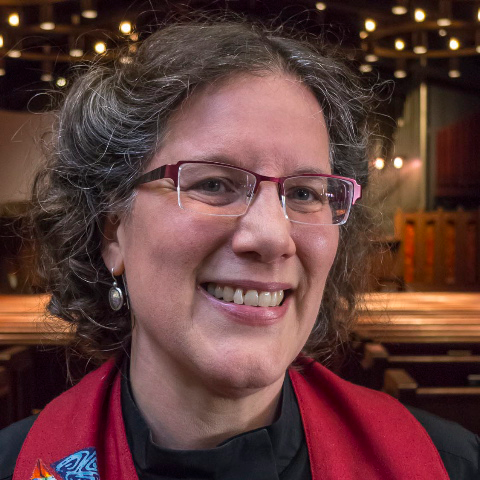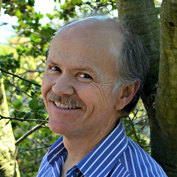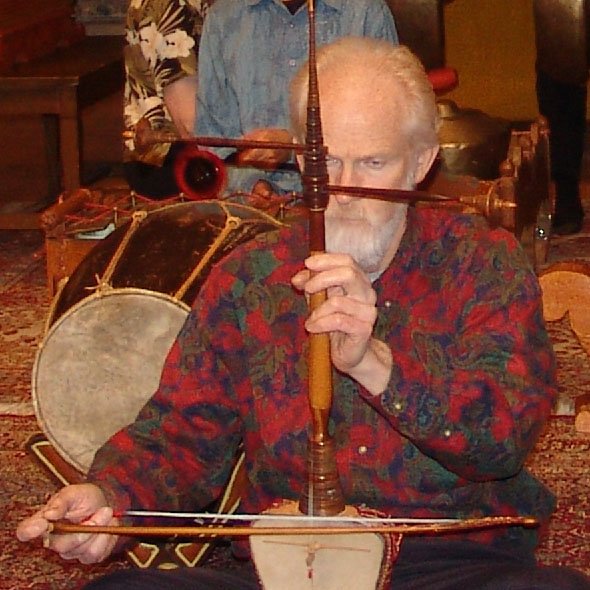Reading
To be of use
by Marge Piercy
The people I love the best
jump into work head first
without dallying in the shallows
and swim off with sure strokes almost out of sight.
They seem to become natives of that element,
the black sleek heads of seals
bouncing like half submerged balls.
I love people who harness themselves, an ox to a heavy cart,
who pull like water buffalo, with massive patience,
who strain in the mud and the muck to move things forward,
who do what has to be done, again and again.
I want to be with people who submerge
in the task, who go into the fields to harvest
and work in a row and pass the bags along,
who stand in the line and haul in their places,
who are not parlor generals and field deserters
but move in a common rhythm
when the food must come in or the fire be put out.
The work of the world is common as mud.
Botched, it smears the hands, crumbles to dust.
But the thing worth doing well done
has a shape that satisfies, clean and evident.
Greek amphoras for wine or oil,
Hopi vases that held corn, are put in museums
but you know they were made to be used.
The pitcher cries for water to carry
and a person for work that is real.
The Work of the World
Rev. Bill Hamilton-Holway, Beth Jerde, and Rev. Barbara Hamilton-Holway
Rev. Bill Hamilton-Holway
A person cries for work that is real. Work done well should satisfy.
Last Sunday Roger Dillahunty danced to embody the message of the Rev. Dr. King’s speech delivered 50 years ago at the March on Washington for Jobs and Freedom.
And this week President Obama and others spoke at that same site, the Lincoln Memorial. They lifted up Dr. King’s eloquence and call to justice. President Obama said so much that speaks to the truth we know. On this Labor Day Sunday we refrain much of what he said about work and workers.[1]
Looking back, he honored those who marched. “In 1963… they came by the thousands, from every corner of our country — men and women, young and old, blacks who longed for freedom and whites who could no longer accept freedom for themselves while witnessing the subjugation of others…
They were seamstresses, and steelworkers, and students, and teachers, maids and Pullman porters… On a hot summer day, they assembled..,in our nation’s capital…, to offer testimony of injustice, to petition their government for redress and to awaken America’s long-slumbering conscience.”
Certainly, that day was a triumph for Dr. King. President Obama proclaimed that day “also belonged to those ordinary people whose names never appeared in the history books…They had seen loved ones beaten and children fire- hosed. And they had every reason to lash out in anger or resign themselves to a bitter fate.And yet they chose a different path…the moral force of nonviolence.”
“And because they kept marching, America changed… the civil rights law was passed, the voting rights law was signed, doors of opportunity and education swung open so their daughters and sons could finally imagine a life for themselves beyond washing somebody else’s laundry or shining somebody else’s shoes.
Because they marched, city councils changed and state legislatures changed and Congress changed and, yes, eventually the White House changed.”
“Because they marched, America became more free and more fair, not just for African-Americans but for women and Latinos, Asians and Native Americans, for Catholics, Jews and Muslims, for gays, for Americans with disabilities.”
“Americans owe those … men and women without rank or wealth or title or fame [who] would liberate us all, in ways that our children now take for granted as people of all colors and creeds live together and learn together and walk together, and fight alongside one another and love one another, and judge one another by the content of our character…”
President Obama told us the “men and women who gathered 50 years ago were … seeking jobs as well as justice – not just the absence of oppression but the presence of economic opportunity. For what does it profit a man, Dr. King would ask, to sit at an integrated lunch counter if he can’t afford the meal?”
On this Labor Day Sunday, let us remember, in President Obama’s words, “that one’s liberty is linked to one’s livelihood, that the pursuit of happiness requires the dignity of work, the skills to find work, [and] decent pay.”
Fifty years after Martin Luther King’s I Have a Dream speech, “black unemployment … remains almost twice as high as white unemployment, [and] Latino unemployment [is] close behind.”
In President Obama’s words, “The gap in wealth between races has not lessened, it’s grown…As corporate profits soar…, as the pay of a fortunate few explodes, inequality has steadily risen over the decades. Upward mobility has become harder.
In too many communities across this country… the shadow of poverty casts a pall over our youth…”
Our dream is that our “economic system provides a fair shot for the many, for the black custodian and the white steelworker, the immigrant dishwasher and the Native American veteran. To win that battle, to answer that call – this remains our great unfinished business.”
On this Labor Day Sunday 2013, when steel fences block our borders, and men, women, and children risk their lives to find a better job, we remember too much of the work of the world is dirty, harmful to body and spirit.
Bethe Jerde
Members of the immigration working committee took a farmworker tour in Watsonville on August 18th. We heard testimonies from Mexican farm workers and female residents of a migrant camp; picked strawberries; and concluded the tour having dinner at the home of a woman who works in the fields and is a single parent of four children, sharing her substandard rental house with her male cousin. Our tour guides were Ann Lopez, researcher and author of The Farmworkers’ Journey, and RIchard Hobbs, an immigration lawyer.
When was the last time you took a trip to a foreign country? What steps did you have to take in preparation for your voyage? The last time I went to Nigeria I had my passport and visa, and then there were health-related items to attend to:
A year’s supply of malarial prophylaxis, started two weeks prior to arriving in Nigeria;
three rounds of rabies vaccination;
yellow fever shot;
river blindness medication;
and drugs for diarrhea, dengue, and typhoid fever.
DONE-READY to go!
The women in Mexico preparing to come to the US to work as strawberry pickers aren’t getting their passport photos taken or filling out visa forms.
To prepare for their journey to be coyoted across the desert and smuggled into the US, they start taking contraception.
Why?
Because these women know the odds are that somewhere along the 3-4-5-day voyage, they will be raped.
I want to pull out this one strand from the tapestry of stories we heard that day: Mexican women start taking contraception prior to their journeys to the US in order to work in the fields. Because the percentage of rapes occurring en route to the US is 60 percent.
Once these women are working in the fields, the likelihood of sexual assault increments to 80 percent. The fields are managed by male supervisors. Sexual harassment is leveraged against female workers which may result in “softer” jobs. Women are challenged with their wages being withheld unless they provide sexual favors. One woman was confronted by her supervisor to perform sexual favors herself, or he threatened to go after her 14 year-old daughter.
Shifting to another facet of this vulnerability that these female farmworkers contend with, Ann Lopez recounted the story of a woman farmworker living in Salinas with her five children, each one fathered by a different man. This woman and her family live in a three-room cobble in disrepair; she works in the fields during the day, and prostitutes at night to supplement her income. She literally has a red light in the window. Ann asked her why she doesn’t use birth control-? The woman responded that birth control costs money. There is no health coverage provided, working in the fields. She said that she needs to use the money she gets to buy food for her children so that they don’t starve.
As Ann said, this is truly “…..living on the edge of survival, in-the-moment.”
Rev. Barbara Hamilton-Holway
People are meant not to be abused, but to be of use. Work should be worth doing well.
Work should be good for the soul, good for the community.
Who was the first worker on earth?
In Genesis it is God. God is a worker, busy with creation. God works six days and rests on the seventh. At the end of each day, God reflects on work. God says, “it is good, very good.”
Work should be productive. Work should be satisfying.
In the Genesis story, God created humans in God’s image to be creators, maintainers of the garden. Jobs are meant to serve goodness and creation.
Dr. King lifted up the dignity of workers. In 1968 he joined with sanitation workers in Memphis, who were striking for job safety, better wages, benefits, and union recognition. This was Dr. King’s final campaign. Dr. King said garbage collectors’ work is as significant as doctors. Without their work, disease would run rampant.
We dream all work will be recognized in its significance, its contribution to the community, its support of the greater good.
President Obama echoed Dr. King and Unitarian minister Theodore Parker, when he said on Wednesday, that “the arc of the moral universe may bend towards justice, but it doesn’t bend on its own.”
Across this nation, workers, at fast food restaurants and box stores, are striking. They are bending the arc towards justice.
They are not high school kids. They are adults like Bartolome Perez, a 42 year old married father from Los Angeles. He’s worked at McDonalds for more than two decades, serving as a janitor and a cook. His last raise — a 50-cent bump to $10.75 an hour – came five years ago.
His family struggles to afford a $1,000 monthly rent, $220 car payment, $200 food costs and other expenses. “We live by miracles,” he said. “We have to watch every cent.” [2]
President Obama said, “The promise of this nation will only be kept when we work together…” when we “turn not from each or on each other but towards one another, and we find that we do not walk alone. That’s where courage comes from… And with that courage, we can stand together for good jobs and just wages.”
President Obama celebrated the many people doing good for the community—the tireless teacher, the business person who pays workers a fair wage, who gives someone down on his luck a job. He celebrated parents raising children right. He said, “people who love their country can change it.”
Each of us has a job to do. Find your work that is real, meaningful and satisfying.
Join with the congregation in our shared work. Maybe you’ll show up at the West County jail this coming Saturday to hold vigil for the immigrant people detained there.
Maybe you’ll get involved in our interfaith community organizing, or our programs tutoring students in writing or reading to school kids, serve at the soup kitchen, or join a teaching team to share values of love and justice with our children, or blend your voice with others in the choir to create harmony and a beautiful new sound.
Maybe you’ll bring compassion to your work place, advocate for fair wages, express appreciation to workers.
Maybe you’ll be a presence of decency and kindness on the streets, in shops, and in your home.
May you be able to say your work is real and it is good. May you see yourself as part of a larger whole.
President Obama said,“…When millions of Americans of every race and every region, every faith and every station… join together ……mountains will be made low, … rough places will be made plain, and crooked places… [will] straighten out towards grace, and we will vindicate the faith of those who sacrificed so much and live up to the true meaning of our creed..[of] liberty and justice for all.”
~~~~~~
Put what you have been given to good use.

















